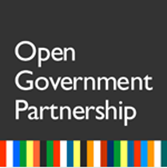|
|
||
|
This meeting, jointly organized by the Government of Mexico, the OAS General Secretariat, and OGP, took place under the aegis of the Inter-American Program of Cooperation to Fight Corruption and was intended to promote cooperation and exchanges of information regarding transparency and accountability for the improved provision of public services, the efficient and transparent management of public resources, the right of access to information, and greater citizen participation. OGP offers an opportunity for consolidating a transparency agenda, encouraging collaboration between governments and civil society, and strengthening accountability in the region, which is synergistically aligned with the objectives of the Inter-American Convention against Corruption (IACAC) and its follow-up mechanism (MESICIC). This was borne in mind during the proceedings of this Regional Dialogue, at which national representatives to the MESICIC Committee of Experts presented a hemispheric view of the commitments acquired, progress made, and agenda for transparency, accountability, and citizen participation under the aegis of those developments. The opening session was attended by the representative of the Secretariat of Foreign Affairs of Mexico; Juan Manuel Gómez Robledo, the OAS Secretary for Legal Affairs, Jean Michel Arrighi; the Ambassador of the United States in Mexico, Earl Anthony Wayne; the Presiding Commissioner of Mexico’s Federal Institute for Information Access and Data Protection, Jacqueline Peschard; the Chief Minister of the office of Brazil’s Comptroller General, Jorge Hage Sobrinho; and Mexico’s Secretary of the Civil Service, Rafael Morgan. The event consisted of two plenary sessions, organized into simultaneous panel sessions and workshops. The first panel session dealt with the hemispheric agenda, during which representatives to the MESICIC Committee of Experts presented a hemispheric view of the commitments acquired, progress made, and agenda for transparency, accountability, and citizen participation under the Inter-American Convention against Corruption. The panelists included Bolivia’s Minister of Institutional Transparency and Fight against Anticorruption, Nardi Suxo; the Executive Secretary of Panama’s National Anticorruption Transparency Council, Abigail Benzadón Cohen; Mathilda Haykal Sater, Legal Counsel at Canada’s Ministry of Justice; and the Chair of the MESICIC Committee of Experts and Mexico’s Director General for Transparency Studies and Policies, Alfredo Esparza. The second panel session dealt with the Open Government Partnership, at which the national representatives to the OGP initiative’s Steering Committee gave a presentation on the process and challenges faced in designing and implementing its plans of action. The panelists were: Joel Salas Suárez, Head of Mexico’s Unit for Transparency Policies and International Cooperation; and Roberta Solís, International Affairs Advisor at the office of Brazil’s Comptroller General. The third panel session consisted of an exchange of experiences on the design of plans of action for thirteen countries of the Americas seeking to join the Partnership. The panelists were: Vennettia Fernández, Undersecretary for Control and Transparency of the Republic of Guatemala; Julio Raudales, Secretary of State, Technical Secretariat for Planning and External Cooperation of Honduras; Alberto Precht Rorris, Executive Secretary of Chile’s Probity and Transparency Commission; Frank E. Olivares V, Director of Policies and Technologies, Ministry of the Presidency of the Dominican Republic; and Ginette Martin, Minister Counsellor for Foreign Affairs and International Trade, Canada. Finally, four simultaneous workshops were held, at which successful practices and specific projects related to the following topics were presented: transparency and accountability for the improved provision of public services, led by Nicolás Dassen, Institutional Capacity of the State Division, Inter-American Development Bank; efficient and transparent management of public resources to prevent corruption and foster integrity, led by Juan Pablo Guerrero of the International Budget Partnership; the Model Law on Access to Administrative Information, led by Mauricio Farah of the Federal Institute for Information Access and Data Protection; and encouraging citizen participation through information technologies, led by Tariq Khokhar of the World Bank Institute. The event was concluded by the Director of the Department of Legal Cooperation of the OAS, Jorge García González. For further information, see: http://www.opengovpartnership.org/. |
Edition N° 84 - March 2012
The Mechanism For Follow-up on the
Implementation of the Inter-American
Convention against Corruption, known as MESICIC for its Spanish acronym, is a tool to
support the development of the Inter-American
Convention against Corruption through
cooperation between States Parties.
|
|

